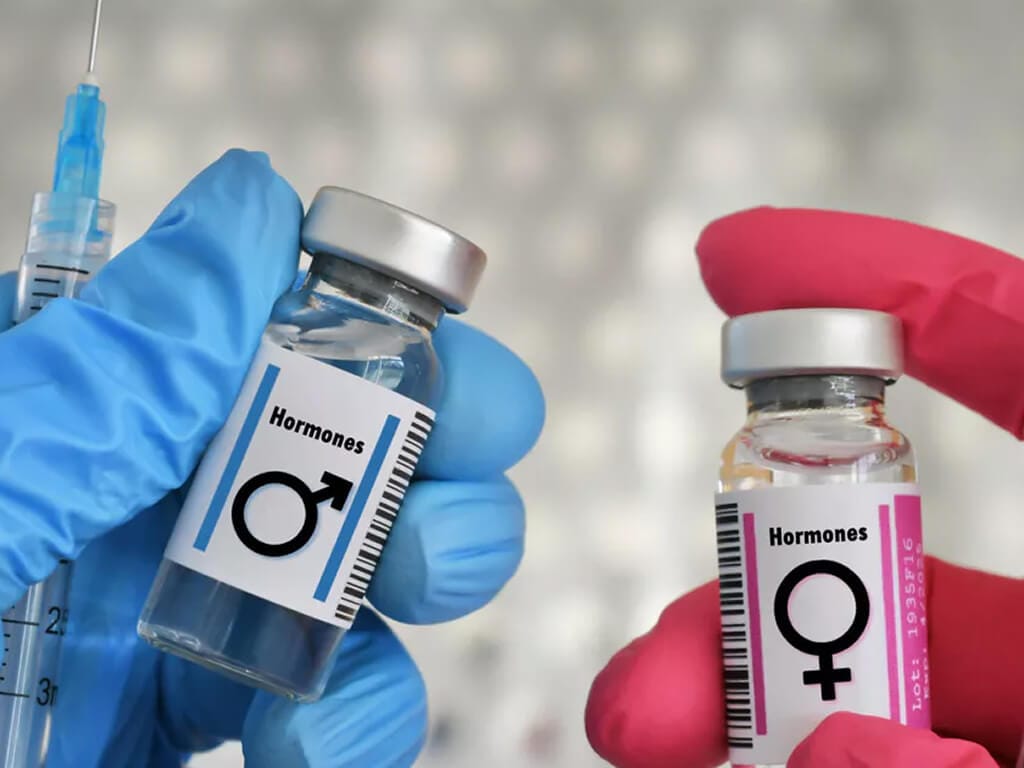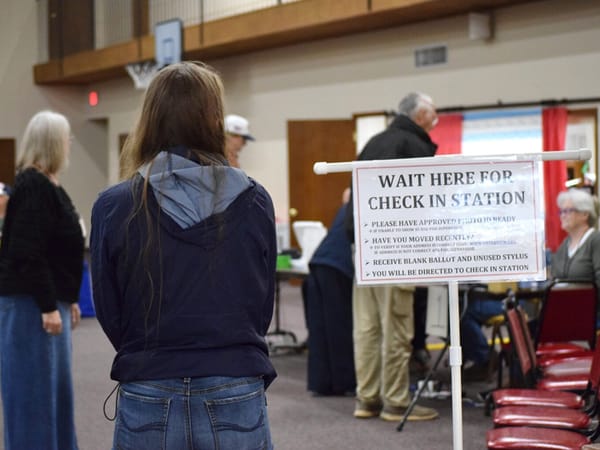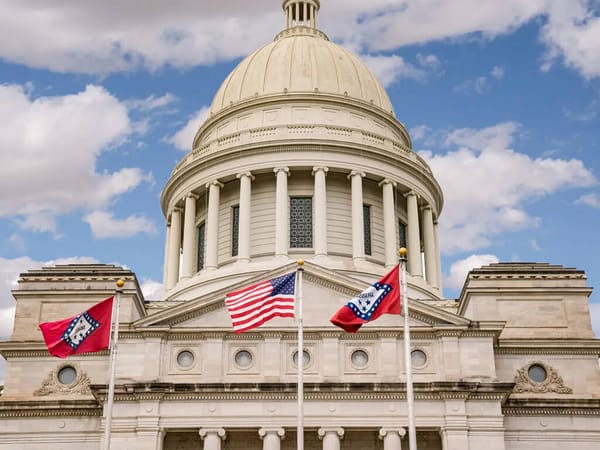Appeals Court Upholds Arkansas Ban on Transgender Treatments for Minors
A federal appeals court has upheld Arkansas’s SAFE Act, banning transgender treatments for minors. The decision reverses a previous block and reignites a national debate over health care rights and protections.

In a decision that underscored the country’s deep divide over transgender rights, a federal appeals court has upheld Arkansas’s ban on gender-affirming medical care for minors, handing a major victory to Republican lawmakers who championed the measure.
The law, known as the Save Adolescents from Experimentation, or SAFE, Act, made Arkansas the first state in the nation to prohibit such treatments. The 8-2 ruling by the Eighth U.S. Circuit Court of Appeals came after Attorney General Tim Griffin urged the court to weigh the U.S. Supreme Court’s June decision upholding a similar ban in Tennessee. Both the Tennessee and Arkansas laws had previously been blocked by federal judges.
The ruling is likely to reverberate far beyond Arkansas. Supporters framed it as an affirmation of states’ authority to regulate medical practices for minors, while critics warned it could embolden efforts nationwide to restrict LGBTQ+ rights and intensify hostility toward transgender communities.
The SAFE Act: Arkansas’s First-in-the-Nation Ban
Enacted in 2021, the SAFE Act bars physicians from providing hormone therapy, puberty blockers, or surgical procedures to anyone under 18. It also prohibits doctors from referring minors to other providers for such care.
The law was controversial from the beginning. Then-Governor Asa Hutchinson vetoed the measure, but the Arkansas Legislature overrode his decision and allowed it to take effect.
State Representative Robin Lundstrum, a Republican from District 87 who sponsored the bill, noted that similar efforts have emerged across the country. “Twenty-six other states have filed very similar legislation. Of course, Tennessee made it all the way to the Supreme Court,” she said. She argued that the measure reflects what she described as “common sense,” adding, “the adults are walking back in the room on this issue and saying, we do not cut off the breasts of a child or a penis of a child. And we don’t chemically or surgically castrate a child. So, I think this has been coming, we just happen to be the first.”
Court Battles That Reshaped the Debate
Soon after the SAFE Act was signed into law, families of four transgender minors and two doctors challenged it in court. In 2021, a federal judge in the Eastern District of Arkansas temporarily halted its enforcement, a decision that was upheld the next year by a three-judge panel of the Eighth Circuit Court of Appeals.
In 2023, a district judge went further, permanently blocking enforcement and declaring the law unconstitutional. Later that year, Attorney General Tim Griffin petitioned for a full review by the entire appeals court, which was granted.
Following the U.S. Supreme Court’s decision to uphold a similar law in Tennessee, the Eighth Circuit asked both sides to submit supplemental briefs. The plaintiffs urged the court to send the case back to the Eastern District of Arkansas. On Tuesday, August 16, the appeals court granted that request but also allowed the SAFE Act to take effect, ending a four-year delay.
Judge James Moody of the Eastern District previously ruled that the law violated the Equal Protection Clause of the Fourteenth Amendment by restricting medical care based on sex. He also determined that the rational basis test did not apply, since the classification was rooted in sex rather than medical procedures alone.
The appeals court disagreed. In its opinion, it stated that the SAFE Act “classifies based on age and medical procedure, not sex” and “regulates a class of procedures, not people.” The court also rejected claims that the law violated due process rights or the First Amendment.
Supporters Claim a Victory for “Protecting Children”
Lundstrum said the ruling marked the end of a long wait. “For four years people have asked me, when is this going to happen? We’ve got to stop the chemical and surgical castration of children. They need to be protected. We’ve waited patiently, and today is a good day. Thank you to the people of Arkansas who waited patiently with me.”
Attorney General Tim Griffin also praised the decision. “I applaud the court’s decision recognizing that Arkansas has a compelling interest in protecting the physical and psychological health of children and am pleased that children in Arkansas will be protected from risky, experimental procedures with lifelong consequences.”
Lundstrum credited her colleagues in the Legislature for standing behind the SAFE Act, which had 64 cosponsors out of 135 members. “They put their political futures at risk by saying children are more important than politics,” she said.
State Sen. Alan Clark (R-District 7), another supporter of the law, was more direct in his criticism of gender-affirming care. “This is not medicine; this affirmation is not science. We are mutilating kids,” Clark said.
Opponents Warn of Harm and Exclusion
The ruling faced immediate backlash from the ACLU of Arkansas.
“This is a tragically unjust result for transgender Arkansans, their doctors, and their families,” said Holly Dickson, the organization’s executive director. “The state had every opportunity and failed at every turn to prove that this law helps children. In reality, this is a dangerous law that harms children.”
Dickson stressed that the fight is not over. “As we and our clients consider our next steps, we want transgender Arkansans to know they are far from alone. We remain as determined as ever to secure their right to safety, dignity, and equal access to the health care they need.”
Parents involved in the lawsuit argued that the SAFE Act interfered with their ability to make informed decisions about their children’s medical care. The appeals court dismissed that claim, stating that parental authority in this area is not unlimited.
During the 2022 trial, two physicians from Arkansas Children’s Hospital testified that they did not perform breast or genital surgeries on transgender minors and did not refer patients for such procedures.
Each of the four minor plaintiffs was represented by a parent who testified about their child’s transition. Since then, three of those minors have reached adulthood. The fourth, 13-year-old Brooke Dennis, has moved with her family from Bentonville to another state where her medical care is protected, according to court documents.
What Comes Next for Arkansas and Beyond
With the SAFE Act now in force, Attorney General Tim Griffin has cautioned doctors to comply. “If you are telling a child, if you are recommending that a child seek this type of care, you’re in violation of the statute,” he said.
The case will return to the Eastern District of Arkansas for further proceedings, but the law remains active in the meantime. Arkansas, as the first state to pass such a ban, now stands at the center of the national debate over gender-affirming care, with at least 26 other states pursuing similar measures.





